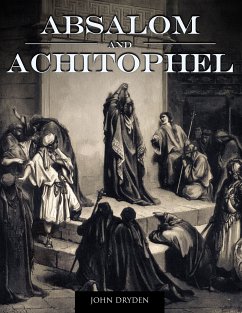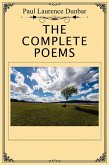Absalom and Achitophel is a landmark poetic political satire by John Dryden. The poem exists in two parts. The first part, of 1681, is undoubtedly by Dryden. The second part, of 1682, was written by another hand, most likely Nahum Tate, except for a few passages-including attacks on Thomas Shadwell and Elkanah Settle, expressed as Og and Doeg-that Dryden wrote himself. The poem is an allegory that uses the story of the rebellion of Absalom against King David as the basis for discussion of the background to the Monmouth Rebellion (1685), the Popish Plot (1678) and the Exclusion Crisis.
Dieser Download kann aus rechtlichen Gründen nur mit Rechnungsadresse in A, B, BG, CY, CZ, D, DK, EW, E, FIN, F, GR, H, IRL, I, LT, L, LR, M, NL, PL, P, R, S, SLO, SK ausgeliefert werden.









